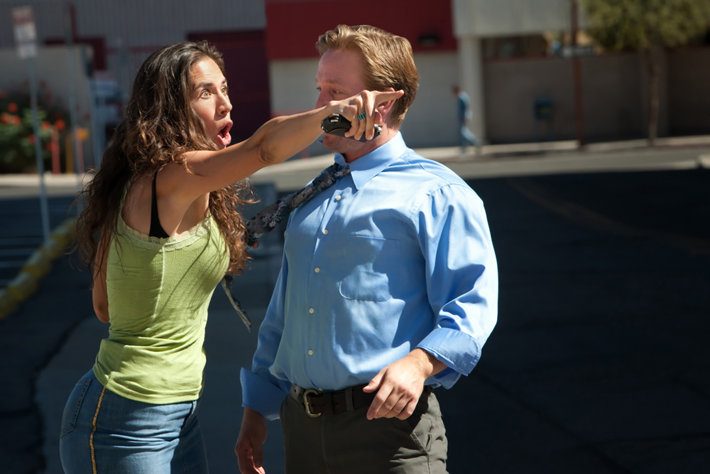
-
HOME
-
WHAT IS STANDOur Mission Our Values Our Help Contact
-
WHAT WE FIGHT FORReligious Freedom Religious Literacy Equality & Human Rights Inclusion & Respect Free Speech Responsible Journalism Corporate Accountability
-
RESOURCESExpert Studies Landmark Decisions White Papers FAQs David Miscavige Religious Freedom Resource Center Freedom of Religion & Human Rights Topic Index Priest-Penitent Privilege Islamophobia
-
HATE MONITORBiased Media Propagandists Hatemongers False Experts Hate Monitor Blog
-
NEWSROOMNews Media Watch Videos Blog
-
TAKE ACTIONCombat Hate & Discrimination Champion Freedom of Religion Demand Accountability
Politically Correct and Intolerant?
The woman who unleashed a tirade of hate at my husband in the parking lot of a local grocery store had no idea who she was speaking to. All she saw was a middle-aged man wearing a baseball hat and flannel shirt who had just stepped out of a parked SUV.

Standing by her Prius, she unloaded a diatribe of vile, insulting language in an angry fashion. She upbraided my husband for driving a “gas-guzzling SUV.” She said he was responsible for global warming because his car’s emissions were causing a hole in the ozone layer. It wasn’t a civil conversation. She didn’t want to engage in a two-sided intellectual dialogue. She didn’t want to change my husband’s mind. She wanted to shame him into regretting his choice of cars. She had a Prius. He should have a Prius. She’s right. He’s wrong.
I’m sure his response was polite, as he was a very kind, thoughtful and intelligent man. He had just been told his cancer was incurable and he would die. The reason for the big car was threefold: to carry wood and supplies for the various repair projects he was completing around the house to ensure things were wrapped up before he left; to have room to carry his beloved dogs on errands with him; and to have a big enough vehicle to take many family members in the car at one time. He wanted his final years, months, weeks or days with all of us.
I don’t know if that woman would have reconsidered her invective had she known that information. But that she was willing to launch an attack on a total stranger—whose circumstances and lifestyle she knew nothing about—meant she felt her idea of her own rightness entitled her to demand others do as she says.
When I was growing up I was always aware of the amazing variety of people and viewpoints. I was taught tolerance—not political correctness—in my classrooms. We studied the basics of history and the Constitution. Civil rights mattered. All people had rights and were to be respected. Hate speech was not allowed.
When did it become so important for each of us to force our own viewpoints onto others in an “if-you’re-not-like-me-you’re-wrong” vendetta?
Beyond the classroom, one of the main reasons I studied Scientology was to improve my communication skills in business and marriage. I learned that communication falters when one side or the other fails to truly understand the viewpoint of the person in front of them. Communication succeeds when both parties are sincere in finding out what the other is trying to say.
Along those lines, I’ve noticed a disturbing change in the quality of public discourse in the last few years. My friends have told me—and I have seen firsthand and in media reports—that there is a growing number of incidents where someone has attacked a total stranger whose beliefs apparently differed from theirs. Perhaps a T-shirt someone is wearing triggers the unprovoked rant. Or perhaps it is a venue they are entering or leaving. These attacks aren’t from demonstrators chanting slogans in a legal, organized fashion. These are personal attacks from someone who holds a viewpoint different from another, unlucky person.
When did it become so important for each of us to force our own viewpoints onto others in an “if-you’re-not-like-me-you’re-wrong” vendetta? When did we veer off into thinking that humanity was a monochromatic school of fish—all the same size, color and shape—destined to swim in a synchronous symphony of total unison? When did it become correct to demand that we not be individuals and that we adhere to only one way of thinking? And that if someone is different from us we don’t have to be tolerant?
That self-important woman who upbraided my husband will never know that the man she attacked fought a brave fight and showed phenomenal strength, courage and tenderness as he left this world.
Is she happy? Or is her life a sad search for people she can criticize, dominate and subjugate? The truth is possibly that her self-esteem is quite shaky and that she only feels better about herself when she can make others wrong. And if she doesn’t respect others she likely doesn’t respect herself.









